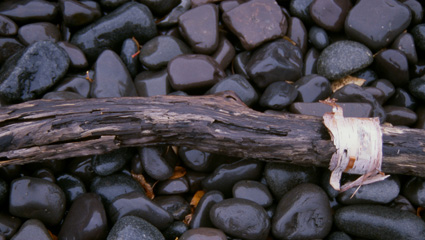April 2010 marked the fortieth anniversary of Earth Day.
Many churches have adapted this holiday by celebrating Earth Sunday, taking time in the life of the church for scriptures, songs, and preaching around the theme of creation care. If you missed preaching on environmental awareness in April, you do not have to wait until next year. Care for creation can be preached any and every Sunday. Public interest in the recent oil spill may help your congregation understand how their faith relates to this crisis and the environment in a new way. Here are a few things to keep in mind as you work this theme into your preaching and worship:
1. Creation care is at the start and heart of who God created us to be. When God imagines human beings in Genesis 1:26, God imagines them ruling over all creation, the fish of the sea, the birds of the air, and all the creatures that move on the face of the earth. The very first words of God to humans reiterate the command to rule and add “be like fruit, be enough, satisfy the earth, and subdue it.”1 In Genesis 2, God makes the first human from the soil, ‘adam from ‘adamah, human from humus. God names the first human in such a way that he might not forget his interdependence with the land. The Christian story of how the world began suggests that caring for the earth is what it means to be human.
2. The command to rule is not license to use and over-use the earth’s resources for our own gain. Caring for the earth is bound up with being made in God’s image. In both Genesis 1:26 and 1:28 the command to rule is paired with God’s vision that humans be made in God’s image and likeness. We are to rule as God’s ambassadors, in the way that God would rule. We look to the gardening God of Genesis 2 for our model of how to rule well. Psalm 104 is a glorious vision of God orchestrating the light, wind, water, and individual animals so that each helps sustain the others. No creature (including humans!) crosses the boundaries set for it, and there is room and resource enough for all. Psalm 104 is a good place to start learning how God would have us rule the earth.
3. Good stewardship is a place to begin the conversation about creation care, but we are called to go a step further. We must learn to see the world as God sees it. In the Bible, the earth is not an inanimate object. Scripture imagines even the rocks, wind, water, and trees as animate and active. Creation groans, is frustrated, and eagerly expects the revealing of the children of God (Romans 8:18-22). The mountains praise God in song, and the rivers and trees clap their hands (Psalm 98 and Isaiah 55). The winds are God’s messengers, and flames of fire are God’s servants (Psalm 104). In the Bible, creation is a lot more like us humans than we like to admit. When we learn to see the earth as like ourselves, we begin to understand how the command to “do unto others…” extends beyond our human relationships to our treatment of animals, plants, and soil.
4. Traditional spiritual disciplines are a great resource for moving a congregation toward creation care. Even the “greenest” of us needs to confess the ways we have misused the earth. We choose the speed and comfort of a car over walking, biking, or busing. We choose fast food with its paper wrapping and Styrofoam cups over cooking or even growing our own food. We choose the ease of disposable containers over carrying reusable plates, cups, and bags around with us. All of these choices use oil and energy and deposit trash into our earth through landfills. BP is at fault and should be held accountable for the incomprehensible damage in the Gulf of Mexico, but BP and other companies rapaciously drill in order to meet our demand for oil. The church is one of the only modern institutions that has retained a regular practice of confession, lament, and repentance. We must teach our congregations to understand misuse of the earth as a sin that needs confessing.
We can also draw on the Christian tradition of daily spiritual practices as we encourage creation care. We are quick to ask our congregants to practice daily prayer and Bible reading, watch their language, and live sexually faithful lives. Most Christians have some idea that their faith will make claims on the way they live. Our job in preaching environmental awareness is to expand our understanding of daily spiritual disciplines to include gardening, using cloth bags, and biking or walking when we need not drive. We must help our congregants see these practices as not simply a personal choice to “be green,” but a faithful way to live into our calling to be the image of God in the world.
5. If you preach environmental awareness, you will not be alone. There are resources to help you. Check out The National Council of Churches’ Committee on Eco-Justice for facts and worship ideas. The Green Bible (HarperCollins, 2008) takes a new twist on red-letter editions by highlighting all biblical passages about the environment in green. For a thought-provoking and comprehensive biblical study, check out Ellen Davis’ Scripture, Culture, and Agriculture: An Agrarian Reading of the Bible.
1This is my translation of Genesis 1:28a from the four Hebrew roots parah, rabah, mala’, and kabash.

